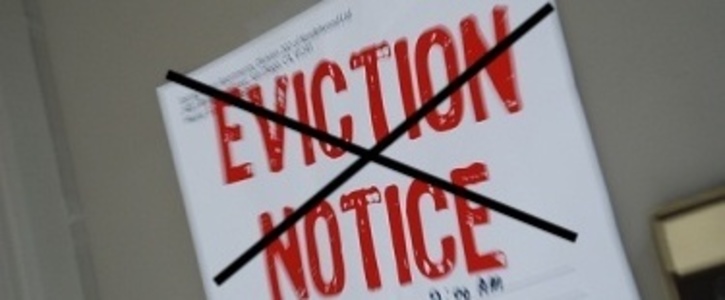The government of Zimbabwe proposed a moratorium on evictions during the lockdown period, instead proposing rental arrears be treated as debt to be settled in instalments after the lockdown has been lifted. This was announced by Minister of Information and Publicity Monica Mutsvangwa presenting the outcome of a cabinet meeting in Harare as we have become accustomed to. This was announced among a few other measures as the government attempts to deal with the ripple effects of the Covid-19 pandemic.
“Both residential and commercial properties be afforded a moratorium on evictions in respect of applicable lease obligations due for the period from April to the end of lockdown including the payment of rentals due for those months,” said Mutsvangwa. The lockdown has impacted the incomes of many with very few businesses being allowed to operate and many of those operating affected by depressed demand. As such the government has seen fit to intervene and pave the way forward.
It doesn’t stop at rentals as the government has also offered the relief to homeowners and landlords who as a result of delayed rentals will be unable to make mortgage payments. Allowing them a moratorium on legal action from their lenders. Rental referrals will.also not include interest or penalty of any nature. The move is timely and a rare sign of productivity from our decision. Proactive in the sense that there was set to be a rush of litigation and evictions against tenants who genuinely could not meet their obligations.
Whilst the government has protected those lessons who have mortgage obligations the moratorium falls short for those who depend on rental income and it is highly likely that they far outnumber those with mortgage obligations. Of course, it’s fair to say if the tenant cannot pay, they simply cannot pay and the announcement is set to manage the conversation.
The rental arrears are to be paid after the lifting of the lockdown in equal instalments. This brought about questions as to when the lockdown will end if there is a known end in sight and it is highly likely there is none. Recent events with the spread of COVID-19 to rural areas make the threat of the pandemic greater. While Zimbabwe has reported very low numbers to date there is the reasonable fear among many that the low numbers represent a lack of knowledge on.the true extent of infections.in.the country rather than a low incidence.
Cabinet also adopted increased testing protocols and will now test security personnel and their families, all medical staff and patients at all central hospitals. The mass testing at hospitals is welcome as several cases were detected post mortem. Citizens are also concerned about the outbreak of malaria and high numbers. These fears were further pushed when a patient being treated for malaria tested positive for COVID-19.
What does this mean?
The government has stepped in and allowed rentals that were or will be unpaid due to the lockdown to be carried as debt. This debt will be payable over equal instalments when the lockdown is lifted. It is not entirely clear how many instalments or if this will be done through an agreement between the parties. What is clear is that the rental instalments will be payable on top of the rental due for those months. If you can pay, paying now would likely be better.









This article is riddled with grammatical and spelling mistakes, coupled with poor, half-completed sentences. This was clearly not “sense-checked” and proof read before pressing post. I will not bother to point out where, because its too glaring. Please proof read your articles thoroughly and we might take you seriously.
Firstly, thank you for reading the article. Secondly, thank you for your feedback, we really appreciate. As the author and editor, I will do the utmost to make sure this is corrected although it is difficult to do so without knowing where I went wrong. However, rest assured your next read will be better.
such ruthless people